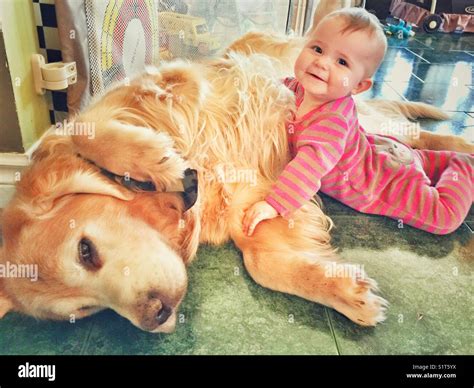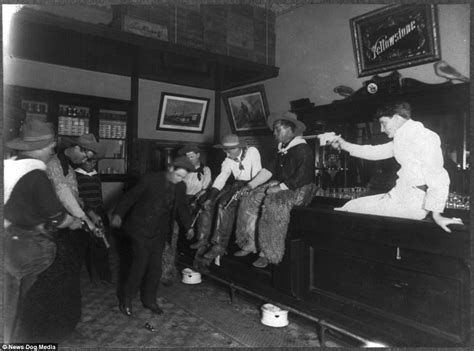
A woman who called off her wedding just weeks before the big day proceeded with her planned honeymoon to Italy, but with her best friend instead of her fiancé. TikTok user @thesweetpaisana, identified as Paisana, shared her story, garnering millions of views and sparking a debate about post-breakup etiquette and the complexities of non-refundable travel plans.
Paisana, whose real name remains undisclosed, had invested significant time and resources into planning her Italian honeymoon. Faced with the difficult decision of canceling the trip entirely after ending her engagement, she opted to take her best friend, adding a unique twist to what was intended to be a romantic getaway. The online reaction has been divided, with some praising her resilience and others questioning the appropriateness of repurposing a honeymoon in such a way.
The TikTok videos showcase the pair enjoying the Italian scenery, indulging in local cuisine, and partaking in activities originally intended for a couple. The videos are captioned with witty remarks and updates on their adventure, highlighting the friendship between the two women and their determination to make the most of the situation. The saga has captivated social media users, leading to discussions about the financial implications of canceled weddings, the importance of friendship, and the evolving definition of travel and leisure.
The decision to proceed with the honeymoon, even under vastly different circumstances, underscores a growing trend of individuals prioritizing personal experiences and finding creative solutions to navigate unexpected life changes. While the situation is undoubtedly unconventional, it reflects a pragmatic approach to dealing with financial loss and a celebration of female friendship in the face of heartbreak.
The original relationship reportedly ended due to irreconcilable differences that surfaced close to the wedding date. While the specifics of the breakup have not been publicly disclosed, Paisana’s TikTok account suggests that the decision was mutual, or at least amicable enough to allow her to move forward without dwelling on the negativity. Instead, she chose to focus on the pre-paid trip and the opportunity to create new memories with a close friend.
The story highlights a common dilemma faced by couples who call off weddings: what to do with the non-refundable deposits and reservations already made. Weddings are often planned months, if not years, in advance, and the financial commitments can be substantial. Cancellation policies vary widely, and recouping costs can be challenging, if not impossible.
Paisana’s decision to bring her best friend along transforms the honeymoon into a “friendmoon,” a term that is gaining traction on social media to describe similar situations. This type of trip allows individuals to salvage a pre-planned vacation and share the experience with a supportive companion. It also challenges the traditional notion of honeymoons as exclusively romantic getaways, suggesting that they can also be a celebration of friendship and personal resilience.
The financial implications of canceling a wedding can be devastating. According to industry experts, the average cost of a wedding in the United States is around $30,000. A significant portion of this expense goes towards non-refundable deposits for venues, caterers, photographers, and other vendors. Travel arrangements, including honeymoons, often have strict cancellation policies, making it difficult to get a full refund.
In Paisana’s case, the decision to proceed with the honeymoon, even with a different travel companion, may have been driven by the desire to avoid losing a substantial amount of money. While the emotional aspect of the situation is undeniable, the financial considerations likely played a significant role in her decision-making process.
The social media reaction to Paisana’s story has been mixed. Some users have praised her for her positive attitude and her ability to find joy in a difficult situation. Others have criticized her for being insensitive to her former fiancé and for potentially trivializing the concept of a honeymoon.
“I think it’s amazing that she didn’t let the pre-paid trip go to waste,” one commenter wrote on TikTok. “She’s making the best of a bad situation, and she’s doing it with her best friend. That’s what I call resilience.”
However, other commenters were less supportive. “I just don’t understand why she would go on a honeymoon with someone else,” one user wrote. “It seems disrespectful to her ex-fiancé, and it’s just plain weird.”
The debate highlights the complexities of navigating breakups, especially when significant financial investments are involved. There is no easy answer to the question of what to do with non-refundable deposits after a wedding is called off, and each situation is unique.
Paisana’s story serves as a reminder that life doesn’t always go according to plan, and that it’s important to be adaptable and resilient in the face of adversity. Her decision to proceed with the honeymoon, albeit with a different travel companion, is a testament to her ability to find joy and create new memories, even after experiencing heartbreak. The experience transformed from a symbol of romantic love to a symbol of the enduring power of friendship.
The viral nature of the story also speaks to the public’s fascination with unconventional relationship dynamics and the growing trend of individuals prioritizing personal experiences over traditional expectations. As social norms continue to evolve, it is likely that we will see more and more people challenging conventional ideas about love, marriage, and travel.
Beyond the immediate reactions, Paisana’s story opens up a broader discussion about the changing landscape of relationships and the evolving definition of commitment. In a society where marriage rates are declining and alternative relationship models are becoming more common, it is important to consider how we define these milestones and how we support individuals who choose to navigate them in unconventional ways.
Moreover, her experience highlights the importance of having open and honest conversations about finances and expectations before making significant commitments. While prenuptial agreements are often associated with wealth and high-profile marriages, they can also be valuable tools for couples who want to protect their assets and ensure that they are on the same page financially.
In the case of Paisana, it is unclear whether she and her former fiancé had discussed the financial implications of canceling the wedding. However, her story serves as a cautionary tale for other couples who are planning to tie the knot. It is essential to have a clear understanding of each other’s financial situations and to have a plan in place for dealing with unexpected events.
The situation also underscores the value of travel insurance. While it may not cover every possible scenario, travel insurance can provide financial protection in the event of unforeseen circumstances, such as illness, injury, or even a canceled wedding. Policies vary widely, so it is important to carefully review the terms and conditions before purchasing coverage.
Ultimately, Paisana’s story is a reminder that life is full of surprises, both good and bad. While her wedding may have been called off, she chose to embrace the unexpected turn of events and create a new adventure for herself. Her decision to proceed with the honeymoon, even with a different travel companion, is a testament to her resilience, her sense of humor, and her unwavering commitment to friendship. It is a story that resonates with many people who have experienced heartbreak and loss, and it offers a message of hope and inspiration in the face of adversity.
The story also emphasizes the importance of strong social support networks. Paisana’s ability to rely on her best friend during a difficult time is a testament to the power of friendship. Having a close-knit group of friends and family members can provide emotional support, practical assistance, and a sense of belonging, all of which are essential for navigating life’s challenges.
Furthermore, the online discussion surrounding Paisana’s story highlights the complexities of social media and its impact on our lives. While social media can be a valuable tool for connecting with others and sharing our experiences, it can also be a source of judgment and criticism. It is important to be mindful of the potential consequences of sharing personal information online and to be prepared to face both positive and negative feedback.
In the end, Paisana’s story is a unique and compelling example of how individuals can adapt to unexpected life changes and find joy in the face of adversity. Her decision to proceed with the honeymoon, even under vastly different circumstances, is a testament to her resilience, her sense of humor, and her unwavering commitment to friendship. The viral nature of her story underscores the public’s fascination with unconventional relationship dynamics and the growing trend of individuals prioritizing personal experiences over traditional expectations. The saga, at its heart, is about resilience, resourcefulness, and the evolving narratives of modern relationships.
The narrative around “friendmoons” is also gaining traction as societal norms shift. What was once seen as solely a romantic endeavor is now being reimagined as an opportunity for platonic celebration and adventure. This highlights a larger trend of individuals placing greater value on experiences and connections with friends, especially in the aftermath of significant life events. Paisana’s story is not just about a canceled wedding; it’s about redefining life’s milestones and embracing the support of friends during challenging times.
The online discussion also touched upon the topic of societal expectations regarding marriage and relationships. While marriage remains a significant life goal for many, there’s a growing acceptance of alternative lifestyles and relationship structures. Paisana’s decision to prioritize her well-being and enjoy a pre-planned trip with a friend reflects this changing attitude. Her story challenges the traditional narrative that a canceled wedding signifies complete failure, instead presenting it as an opportunity for personal growth and new beginnings.
Moreover, Paisana’s experience serves as a reminder of the importance of self-care, particularly after a major life event. Prioritizing mental and emotional well-being is crucial, and engaging in activities that bring joy and fulfillment can be a vital part of the healing process. Whether it’s traveling to a dream destination with a friend or pursuing a personal passion, taking time for self-care can help individuals navigate challenging times and emerge stronger.
In conclusion, the tale of the canceled wedding and the subsequent “friendmoon” has resonated with a wide audience because it touches upon universal themes of love, loss, friendship, and resilience. It’s a story that challenges conventional norms, celebrates the power of female friendships, and reminds us that life doesn’t always go according to plan, but that it’s possible to find joy and create new memories even after experiencing heartbreak. The story underscores the shifting sands of relationship expectations and the increasing value placed on personal well-being and experiences. The event serves as a fascinating case study in modern social dynamics and the evolving landscape of human connection.
The narrative also highlights the importance of financial literacy and planning, especially when it comes to significant life events like weddings. Understanding cancellation policies, investing in travel insurance, and having open discussions about finances with one’s partner can help mitigate potential financial losses in the event of unexpected circumstances. While Paisana’s story is ultimately about resilience and friendship, it also serves as a cautionary tale about the financial risks associated with large-scale events and the importance of being prepared for the unexpected.
Furthermore, the attention surrounding Paisana’s “friendmoon” underscores the growing trend of travel as a form of self-discovery and personal growth. More and more individuals are using travel as a way to challenge themselves, explore new cultures, and gain a broader perspective on life. In Paisana’s case, the trip to Italy became an opportunity to heal from heartbreak, strengthen a friendship, and create lasting memories. The experience transformed from a symbol of romantic love to a symbol of personal resilience and the enduring power of human connection.
The story also exemplifies the role of social media in shaping public perception and influencing societal norms. Paisana’s decision to share her story on TikTok allowed her to connect with a wide audience and spark a global conversation about relationships, resilience, and the changing landscape of modern life. While social media can be a source of criticism and judgment, it can also be a powerful tool for sharing personal experiences, connecting with others, and promoting positive change. Paisana’s story is a testament to the power of social media to amplify individual voices and create a sense of community around shared experiences.
In addition to the personal and financial aspects of Paisana’s story, it also raises broader questions about the cultural significance of weddings and the evolving definition of commitment. As marriage rates decline and alternative relationship models become more common, it is important to reconsider the traditional expectations associated with weddings and to create space for individuals to define their own relationships on their own terms. Paisana’s “friendmoon” is a symbol of this evolving landscape, representing a departure from traditional norms and a celebration of personal agency and the power of friendship.
Finally, the story serves as a reminder that life is a journey, not a destination, and that it is important to embrace the unexpected twists and turns along the way. Paisana’s canceled wedding was undoubtedly a difficult experience, but she chose to embrace the opportunity to create a new adventure for herself. Her decision to proceed with the honeymoon, even with a different travel companion, is a testament to her resilience, her sense of humor, and her unwavering commitment to living life to the fullest. Her story is an inspiration to anyone who has experienced heartbreak and loss, and it offers a message of hope and encouragement in the face of adversity.
Frequently Asked Questions (FAQ)
1. Why did Paisana call off her wedding?
- While the specific reasons for calling off the wedding have not been explicitly stated, reports suggest the relationship ended due to irreconcilable differences that surfaced close to the wedding date. Paisana’s TikTok account implies the decision was mutual or amicable enough for her to move forward positively.
2. What did Paisana do with the non-refundable honeymoon after calling off the wedding?
- Paisana decided to proceed with the honeymoon to Italy, but instead of going with her fiancé, she took her best friend. This allowed her to salvage the pre-paid trip and create new memories.
3. What has been the reaction on social media to Paisana’s decision?
- The reaction has been mixed. Some users praised her for her positive attitude and resilience, viewing it as a way to make the best of a difficult situation. Others criticized her decision as insensitive to her former fiancé and questioned the appropriateness of going on a honeymoon with someone else.
4. What are some of the financial implications of canceling a wedding?
- Canceling a wedding can result in significant financial losses due to non-refundable deposits for venues, caterers, photographers, and travel arrangements. The average cost of a wedding in the United States is around $30,000, and recouping these costs can be challenging.
5. What is a “friendmoon,” and how does it relate to Paisana’s story?
- A “friendmoon” is a term gaining traction on social media to describe a trip that was originally planned as a honeymoon but is repurposed as a vacation with friends after a breakup. Paisana’s trip to Italy with her best friend is an example of a “friendmoon,” highlighting the evolving definition of travel and leisure.









